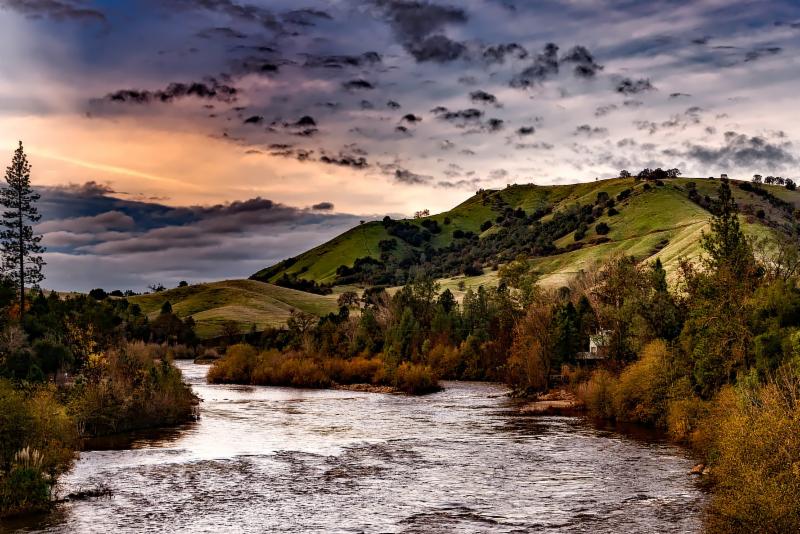| Welcome to your monthly dose of good news about climate change. |
| Climate change can feel heavy sometimes. But we have the solutions we need to create a healthier, more just, and sustainable world, and people across the globe are working hard to make it happen. The Climate Optimist will bring you helpful tips and good news each month to help you stay focused on our shared mission to improve health by tackling climate change.Did someone forward you this newsletter? |
| What We're Reading & Watching |
 Join us on March 14 for a screening of this documentary from Bloomberg Philanthropies followed by a panel discussion with our Director Gina McCarthy about how cities & states are offering a realistic but hopeful take about moving forward.Watch Now Join us on March 14 for a screening of this documentary from Bloomberg Philanthropies followed by a panel discussion with our Director Gina McCarthy about how cities & states are offering a realistic but hopeful take about moving forward.Watch Now |  A report by the Union of Concerned Scientists outlines recent attacks on science, but also examples of scientists pushing back.Read now A report by the Union of Concerned Scientists outlines recent attacks on science, but also examples of scientists pushing back.Read now |  Understanding how you can play a positive role in keeping climate change in check is empowering. Check out 8 Things You Can Do To Care For The Planet, via NYTimes.Read now Understanding how you can play a positive role in keeping climate change in check is empowering. Check out 8 Things You Can Do To Care For The Planet, via NYTimes.Read now |
| Profiles in Climate Courage |
| Climate Change Has An Image Problem: Here's One Solution |
 | Images are essential for successful communication, but for most the images associated with climate change are polar bears and glaciers, not people, which is a significant barrier to engagement. The UK-based organization Climate Outreach is out to change that. They've created a searchable image library to help us better visually communicate how climate change is impacting us now and what the solutions look like.Check it out! |
| #ScienceNotSilence |
| Two rapid-response collaborations between our researchers and media could help protect us from harmful carbon and mercury emissions. |
 EPA Power Plant Standards ExaminedOur study showed that EPA's Affordable Clean Energy Rule (ACE) may be worse for climate and health than no carbon regulations at all. But science alone doesn't create change, so we connected the study's researchers with media to explain why the ACE rule matters for the nation, courts, and our health. This effort lead to our study being:Raised during Andrew Wheeler's confirmation hearing as EPA Administrator. Watch now.Cited by legal experts as evidence for why ACE may not be legally sound. Read now.Covered in media outlets such as the New York Times, The Hill, and Scientific American so everyone can know and take action.Learn more in our study and fact sheet . EPA Power Plant Standards ExaminedOur study showed that EPA's Affordable Clean Energy Rule (ACE) may be worse for climate and health than no carbon regulations at all. But science alone doesn't create change, so we connected the study's researchers with media to explain why the ACE rule matters for the nation, courts, and our health. This effort lead to our study being:Raised during Andrew Wheeler's confirmation hearing as EPA Administrator. Watch now.Cited by legal experts as evidence for why ACE may not be legally sound. Read now.Covered in media outlets such as the New York Times, The Hill, and Scientific American so everyone can know and take action.Learn more in our study and fact sheet . Mercury Protections on the Brink of RollbackIn advance of an expected proposal by EPA to weaken the Mercury and Air Toxics Standards (MATS), we prepared a science brief for reporters and arranged a press call on the most up-to-date research on the health and environmental effects of mercury.Armed with scientific evidence and facts, when EPA announced the proposed rollback, journalists were ready to ensure the public understood how our health was at stake. M ost major news stories incorporated our messages, ensuring that sound science was part of the policy discourse, including:ReutersNPRWashington PostUSA TodayLearn more in our science brief . Mercury Protections on the Brink of RollbackIn advance of an expected proposal by EPA to weaken the Mercury and Air Toxics Standards (MATS), we prepared a science brief for reporters and arranged a press call on the most up-to-date research on the health and environmental effects of mercury.Armed with scientific evidence and facts, when EPA announced the proposed rollback, journalists were ready to ensure the public understood how our health was at stake. M ost major news stories incorporated our messages, ensuring that sound science was part of the policy discourse, including:ReutersNPRWashington PostUSA TodayLearn more in our science brief . |
| Climate Change in the News |
| Journalists are starting to write about climate change and public health |
 |
| Until we all understand that climate change is a problem for people right now , we need the media to write stories about what's at stake, and the solutions.We are helping to train media about how climate changes health, and we were thrilled to join a webinar with the Association of Health Care Journalists, who went on to blog about the "Imperative for covering climate change as a health issue." |



